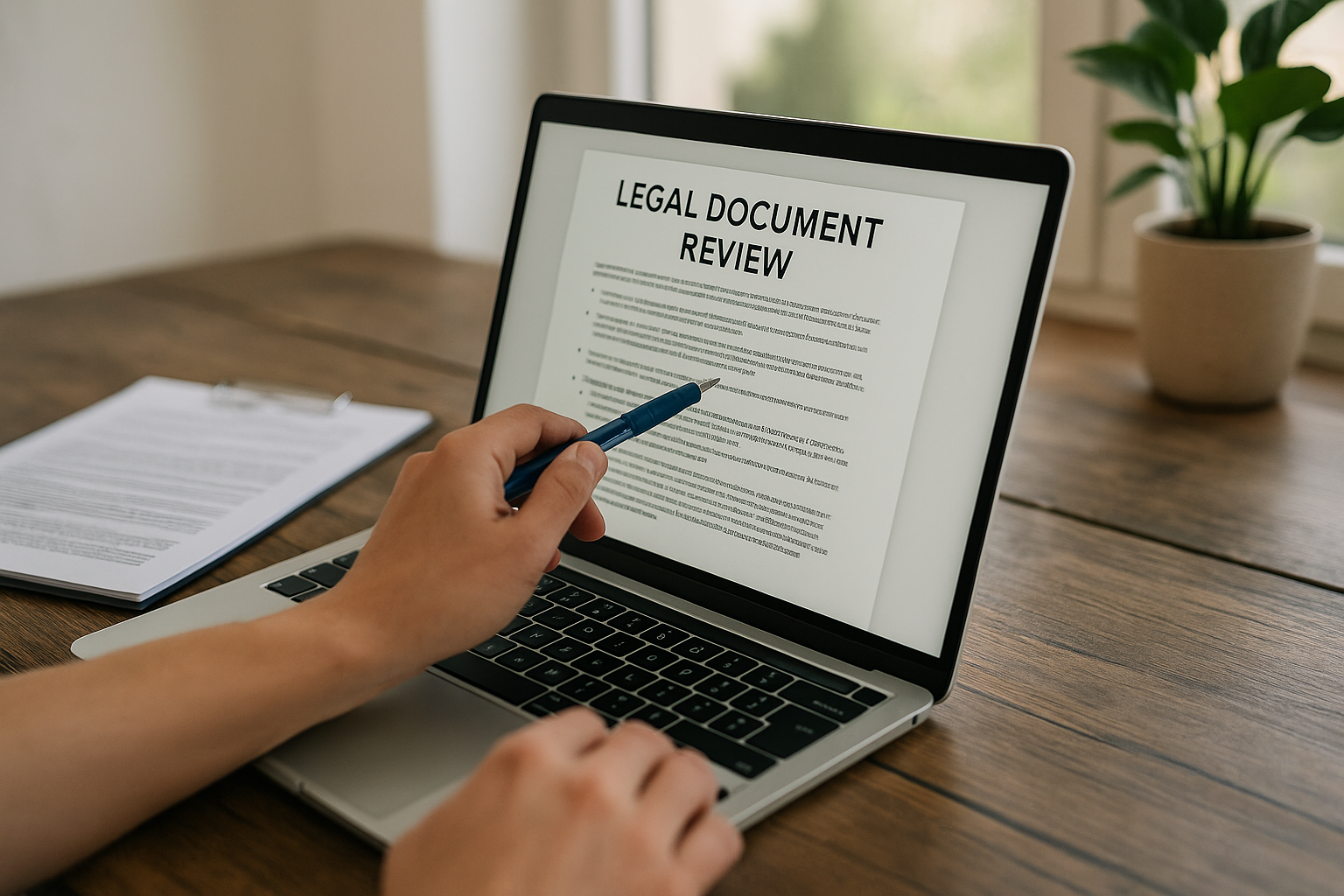Yes, ChatGPT can help with legal documents. It can summarize, identify clauses, and analyze contracts. But it cannot take the place of a licensed attorney. Think of ChatGPT as a helpful assistant, not a legal authority.
This guide shows how ChatGPT can help lawyers and legal teams with contract reviews. We will discuss its strengths and limitations. Plus, we will cover the steps for using generative AI responsibly in law.
What Can ChatGPT Do When Reviewing Legal Documents?

ChatGPT can review legal documents. It finds important parts, such as termination clauses, payment terms, and indemnities. It uses natural language processing (NLP) to understand text. Then, it answers legal questions in a conversational manner.
Strengths of ChatGPT in Legal Review
- Summarize long contracts in seconds.
- Identifies key clauses, like non-disclosure, liability, and arbitration.
- Suggest edits for clarity or tone.
- Answers direct questions about the text.
- Great for preliminary document review and early case assessments.
Limitations of ChatGPT for Legal Professionals
- May produce hallucinated content (made-up case law or statutes).
- Not tailored to jurisdiction-specific regulations.
- Not compliant with attorney-client privilege.
- Cannot ensure legal validity or compliance.
How to Use ChatGPT to Review Legal Documents (Step-by-Step)
Start by ensuring the document is safe to share and stripped of sensitive data. Then follow this process:
Step 1: Upload or paste the legal text.
Format contracts or terms in plain text.
- Use sections and headings for clarity.
Step 2: Request a clause breakdown.
Prompt example:
“Break down this contract into Payment Terms, Termination Clause, and Confidentiality Section.”
ChatGPT will typically respond with:
- Bullet point summaries of each clause
- Short explanations of complex language.
Step 3: Ask targeted legal questions
Prompt examples:
“Is there an exclusivity clause in this agreement?” “Does this NDA include a non-compete restriction?”
You’ll get clear, conversational responses that highlight the relevant parts.
Step 4: Use for Drafting and Rewriting.
Prompt examples:
“Rewrite this indemnity clause in simpler terms.” “Suggest an alternative to this termination provision.”
This is where ChatGPT becomes a contract-drafting copilot—but not a final authority.
Step 5: Cross-check everything
Always check ChatGPT’s feedback with real legal tools or expert advice. Use tools like DocumentReview.Law for deep contract comparisons and AI clause libraries.
ChatGPT vs. Legal AI Tools: What’s the Difference?
ChatGPT reviews legal documents with general language skills. In contrast, legal AI tools are trained on specific legal datasets and case law. Examples:
- Spellbook and Harvey: Made for lawyers. They offer contract clause comparison and compliance alerts.
- Claude by Anthropic: Known for improved judgment accuracy on legal benchmarks.
- Traditional TAR (Technology-Assisted Review) is often used in eDiscovery. It helps find relevant documents during litigation.
ChatGPT is great for initial reviews and brainstorming. Legal AI tools shine in risk analysis, matching clause libraries, and tracking compliance.
Bonus Tip: Check out DocumentReview.Law. It has a Free 30-Day Trial. After that, there’s a special subscription offer available for a short time.
Final Verdict
Yes — but only as a supplementary tool. ChatGPT is a strong tool for reviewing legal clauses. It also offers drafting suggestions and generates summaries. But it cannot replace professional legal counsel. Use tools like DocumentReview.Law. But always talk to a licensed attorney about legal issues.
Is Claude or ChatGPT better for lawyers? [2025]
FAQs
Can ChatGPT review legal documents accurately?
Yes, ChatGPT can review legal documents for structure, key clauses, and basic summaries. It has no legal training, so don’t rely on it for accuracy or compliance in specific areas. Use it for preliminary analysis, not final legal review.
What are the risks of using ChatGPT for legal document review?
The main risks include hallucinations, data privacy issues, and legal inaccuracies. ChatGPT may generate plausible but incorrect legal interpretations. It’s not HIPAA or attorney-client privilege compliant. Always verify outputs with a qualified lawyer.
How do legal AI tools differ from ChatGPT?
Legal AI tools use legal data for training. In contrast, ChatGPT is a general-purpose language model. Tools like Harvey, Spellbook, and Claude leverage legal datasets and case law. They also use compliance libraries. They provide better contract analysis and help detect risks.
Can lawyers legally use ChatGPT to assist with legal tasks?
Yes, lawyers can use ChatGPT for support tasks, but they remain ethically responsible for all outcomes. Use it to draft, summarize, or brainstorm—but not to give client-specific legal advice. Always safeguard sensitive data.
What’s the best tool to review legal documents with AI?
The best tool depends on your needs. Use ChatGPT for simple reviews. For professional compliance analysis, try DocumentReview.Law. DocumentReview.Law gives you a free 30-day trial. You also get 1-month access for detailed contract analysis using legal AI precision.
